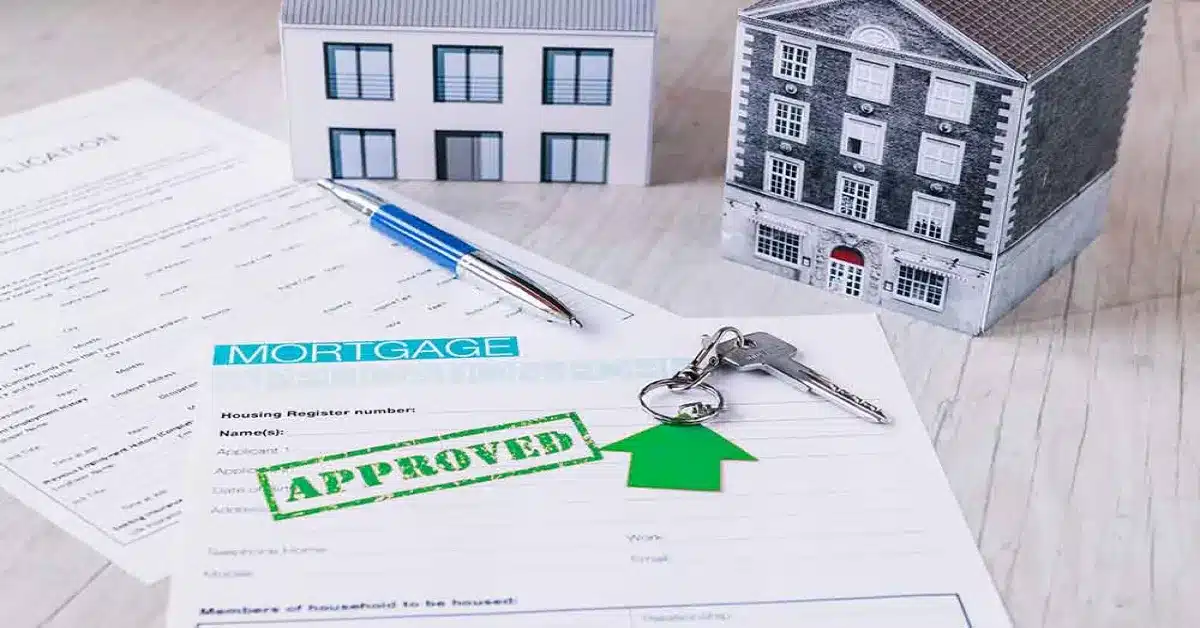Buying property in Dubai often involves mortgage financing, whether you are purchasing a first home, upgrading, or investing in rental real estate. Understanding the types of mortgages available is essential, as each option comes with different structures, costs, and eligibility requirements.
In this guide, we explore the types of mortgages available in Dubai, their workings, and the types of buyers they are best suited for. You will also find up-to-date regulatory limits and practical insights to help you make informed decisions in a competitive property market.
- Overview of mortgage types in Dubai
- Conventional mortgages
- Islamic mortgages
- Specialised mortgage types
- Key regulations and limits in Dubai
- Bank examples and typical rates
- Key takeaways
- FAQs

Overview of mortgage types in Dubai
Dubai’s mortgage market is broadly divided into two main categories: conventional mortgages and Islamic, or Sharia-compliant, financing. Conventional loans are interest-based and are currently the most widely used option, accounting for more than three-quarters of mortgage transactions in the emirate. Islamic mortgages, on the other hand, follow Sharia principles and avoid interest, instead using profit-based structures.
The UAE Central Bank regulates both categories and applies the same loan-to-value limits, debt burden rules, and maximum loan terms. The primary differences lie in how costs are calculated, the structure of ownership during the loan period, and the presentation of repayments to borrowers.
Conventional mortgages
Conventional mortgages are the most common form of home loan in Dubai. These are interest-based loans offered by local and international banks, with repayment terms that can extend up to 25 years.
Most conventional mortgages come with either fixed or variable interest rates, or a combination of both. Fixed rates usually apply for an initial period of one to five years, after which the loan switches to a variable rate linked to EIBOR or the bank’s internal reference rate.
Conventional mortgages are popular because of their simplicity, wide availability, and competitive pricing for borrowers with firm credit profiles.
1. Fixed-rate conventional mortgages
A fixed-rate mortgage locks in the interest rate for a specified period, typically ranging from one to five years. During this period, monthly repayments remain unchanged, regardless of fluctuations in the market rate.
This option is often preferred by buyers who value payment stability and want protection from short-term interest rate fluctuations. It is desirable for first-time buyers budgeting carefully around fixed incomes.
After the fixed-rate period ends, the mortgage usually converts to a variable rate unless the borrower renegotiates or refinances.
2. Variable-rate conventional mortgages
Variable-rate mortgages fluctuate in line with market benchmarks such as EIBOR or a bank-specific rate. Monthly payments may rise or fall depending on interest rate movements.
These mortgages can offer lower initial rates compared to fixed options, making them appealing to buyers who expect rates to decline or who plan to sell or refinance in the short to medium term.
However, variable rates carry more risk, as repayment amounts can increase over time.
Islamic mortgages
Islamic mortgages are structured to comply with Sharia law, which prohibits the charging of interest. Instead of interest, banks earn profit through trade or lease-based arrangements.
In practical terms, monthly payments under Islamic mortgages are often similar to conventional loans, but the underlying structure and terminology differ.
These mortgages are popular among buyers seeking Sharia-compliant financing and those who prefer transparent, asset-backed transactions.
Islamic mortgages in Dubai also offer terms of up to 25 years and are regulated under the same central banking framework as conventional loans.
1. Murabaha financing
Murabaha is one of the most common Islamic mortgage structures in Dubai. Under this model, the bank purchases the property on behalf of the buyer and sells it to them at an agreed markup.
The buyer repays the total amount in fixed instalments over the loan term. The profit margin is disclosed upfront, providing clarity on the total cost of financing.
Murabaha is often used for completed properties and is favoured for its predictability and straightforward repayment structure.
2. Ijara financing
Ijara is a lease-to-own arrangement. The bank buys the property and leases it to the buyer for a fixed period. Each payment includes a rental component and a portion that gradually transfers ownership to the buyer.
Understanding these Types of Mortgages is essential for buyers seeking Sharia-compliant financing, as profit structures differ from conventional interest-based loans.

Specialised mortgage types
Beyond conventional and Islamic mortgages, Dubai’s market offers several specialised mortgage products designed for specific buyer profiles and property uses.
1. Remortgage
A remortgage enables property owners to refinance an existing mortgage, either to secure a lower interest rate, release equity, or modify loan terms. This option is commonly used when fixed-rate periods end or when property values increase.
Remortgaging can reduce monthly payments or free up capital for additional investments, but it may involve early settlement fees and valuation costs.
2. Offset mortgage
An offset mortgage links a borrower’s savings account to the mortgage balance. The savings reduce the amount on which interest or profit is calculated, potentially lowering overall costs. This option suits buyers with substantial savings who want flexibility while minimising financing expenses.
3. Buy-to-let or investment mortgage
Buy-to-let mortgages are designed for rental properties. These typically come with stricter eligibility criteria and lower loan-to-value limits, often capped at 60 per cent.
Banks assess rental income potential alongside the borrower’s personal income, making these mortgages popular with seasoned investors.
4. Non-resident mortgage
Non-resident mortgages are available to buyers who do not live in the UAE. These loans usually require higher deposits, with LTV limits ranging from 50 to 60 per cent.
Documentation requirements are stricter, and interest or profit rates may be slightly higher due to increased risk.
5. Commercial mortgage
Commercial mortgages are used to finance offices, retail units, warehouses, and other business properties. These loans typically require deposits of 20 to 35 per cent and shorter repayment terms compared to residential mortgages.
By understanding these Types of Mortgages, investors and specialised buyers can select the product that best fits their property goals.
Key regulations and limits in Dubai
Mortgage lending in Dubai is strictly regulated to maintain financial stability and protect borrowers. Key rules cover loan-to-value limits, maximum terms, age caps, and debt burden ratios.
- Loan-to-value (LTV) limits:
- First completed home ≤ AED 5M: up to 80% for residents and expats
- First home > AED 5M: 70%
- Second or investment homes: 60%
- Off-plan properties: 50%
- Non-residents: 50–60%, depending on bank and documentation
- Maximum term: up to 25 years, with most banks requiring borrowers to be no older than ~70 at loan maturity
- Debt burden ratio (DBR): capped at 50% of monthly income, including all existing debts such as credit cards, car loans, and personal loans

Bank examples and typical rates
Dubai’s mortgage market is competitive, with both local and international banks offering a variety of products. Options differ for residents and non-residents, as well as between conventional and Islamic financing.
For residents
- Mashreq, Emirates NBD, First Abu Dhabi Bank: offer conventional mortgages with flexible fixed and variable rate options
- ADIB, Dubai Islamic Bank: provide Islamic mortgages (Murabaha and Ijara) with competitive profit rates
For non-residents
HSBC, Mashreq: mortgages available with lower LTV limits and stricter income requirements
Rates (2025)
Generally range between 4% and 7%, depending on the bank, loan type, and borrower profile
Key takeaways
The types of mortgages available in Dubai can be categorised into two main categories: conventional interest-based loans and Islamic profit-based financing. Each option offers distinct advantages depending on personal beliefs, financial goals, and risk tolerance.
Loan-to-value limits vary based on residency status, property type, and value, with off-plan and non-resident purchases subject to stricter caps. All mortgages are limited to 25-year terms, and borrowers must meet a 50 per cent debt-to-income ratio.
Rates typically range from four to seven per cent, making it essential to compare fixed and variable options carefully. Choosing the proper mortgage structure can improve affordability and long-term financial outcomes.
FAQs
For completed properties valued at up to AED five million, residents and expats can borrow up to 80 per cent. For properties with a value above this threshold, the limit is 70 per cent.
Yes, non-residents can obtain mortgages from selected banks. These loans usually offer 50 to 60 per cent LTV and require more extensive documentation.
The most common structures are Murabaha, which involves a markup sale, and Ijara, a lease-to-own arrangement. Both comply with Sharia principles and avoid interest.
The debt burden ratio is capped at 50 per cent of monthly income, including all existing debts and financial commitments.
Mortgage terms can extend up to 25 years, subject to age limits set by individual banks.